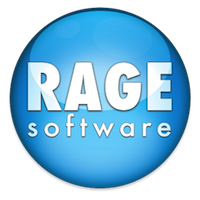Search Engines vs Online Directories: How to get Easy Links, Higher Rankings, & More Website Visitors
February 7th, 2008Summary: The difference between search engines and online directories and how to find quality directories that will actually provide value to your website.
As we all know a search engine allows potential visitors to find your website amongst billions of others fighting for attention. Much like search engines, online directories provide another way for web searchers to find your Websites.
The following table summarizes the differences between search engines and online directories.
| Directories | Search Engines |
|---|---|
| Created by actual humans who evaluate websites on an individual basis. Evaluators may be experts on the subject matter, or may not be. | Created using automated spiders and robots which scan websites and try to determine relevancy based on a number of factors. | Require significant human contributions which slows down the chances of being added. | Will add almost any website as long as they do not violate the search engines terms of service. |
| May require a one time, monthly, or yearly fee, but not always. | Almost never require any kind of fee to be added. |
There are a countless number of online directories with one of the largest being DMOZ, a not-for-profit directory that relies on volunteer editors to determine whether or not a website should be added to the directory.
Directories can also be specific to certain subjects, for example there are directories that will focus only on Small Businesses, or directories like VFunk which specializes in listing dance music and urban lifestyle related websites.
Directories can provide a great way to get incoming links to your website, and some, like DMOZ can actually help your search engine rankings. Since directories review each web page before adding them, a well respected directory can help signify a high quality website to potential visitors and search engines.
The trick to getting links in directories is too find the directories that focus on your niche, and that would actually provide value to your link popularity. Many directories charge a one-time, monthly, or yearly fee to get listed so you have to make sure that they will actually provide enough value to justify the investment. Unfortunately, many of them will not. However, here are some indicators to find out whether or not they will actually be a valuable investment;
Page Rank: Don’t confuse Page Rank with search engine rank. Page Rank is a website popularity measure invented by Google that ranges by 1-10. It tries to measure the popularity of website based on how many people link to a website. A high PageRank signifies a more popular website with higher quality incoming links. If a directory has a high PageRank, this is one indication that they will provide value.
Incoming Links: Incoming links refers to how many other websites are linking to the directory. Combined with the above measure, the number of incoming links can provide a good indication of the quality of a directory. The more incoming links a directory has, the better indication that it will provide better value to you. Remember, that each incoming link counts as a vote for a website, so the more votes a directory has, the more value it will provide.
Domain Age & Expiration Dates: The longer a directory has been online for and the longer the directory domain name has been registered for is a good indication of its quality. Many people start online directories in the hopes of creating advertising and sign up revenue. Only a few will ever provide any kind of value for your website. A person’s commitment to their directory can be seen by how long they have paid to make it available.
You can quickly and easily find all the above information in seconds for dozens of directories at a time. Just enter each directory in RAGE Domainer to find all the above popularity statistics as well as other important information including;
- Who is tagging the directory on the social bookmarking website http://www.delicious.com
- How many blogs are linking back to the directory
With this information you can easily see which directories you should be listed in, and which directories will be a waste of time submitting too.

June 18th, 2011 at 6:42 am
I am looking to increase my traffic and begin selling on my site. How can I become higher on search engines? I create websites on iweb for others and would like them to help them with this as well.
June 29th, 2011 at 10:55 pm
@Wendy: Check out our SEO for iWeb video tutorial which walks you through the process of optimizing an iWeb site for search engines, step by step.